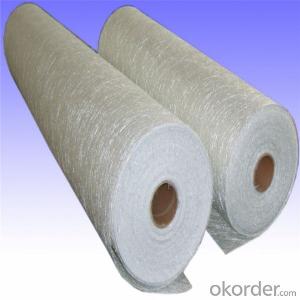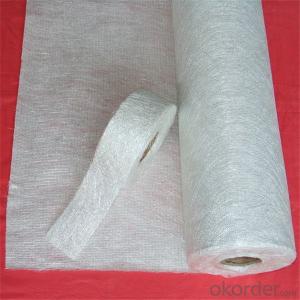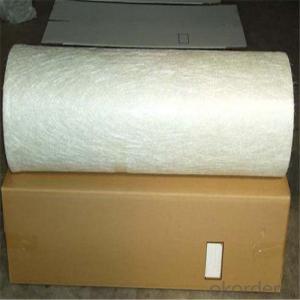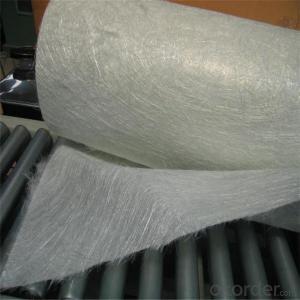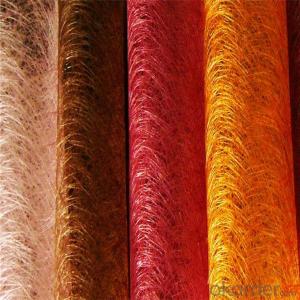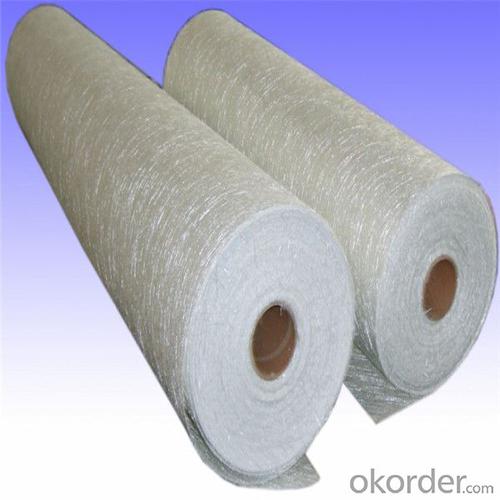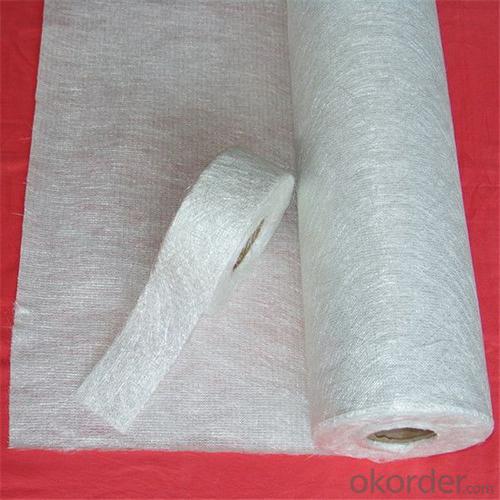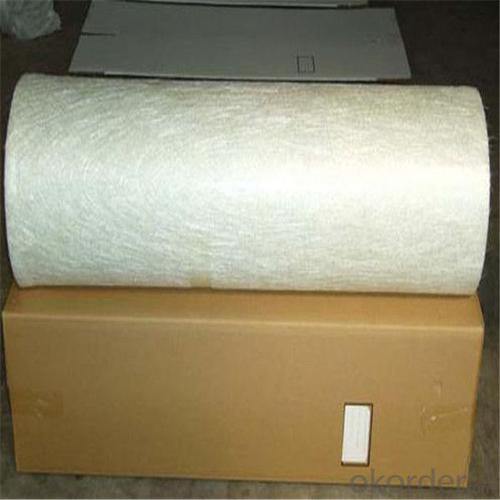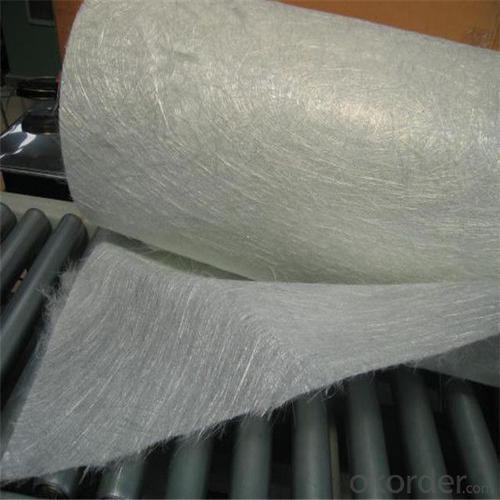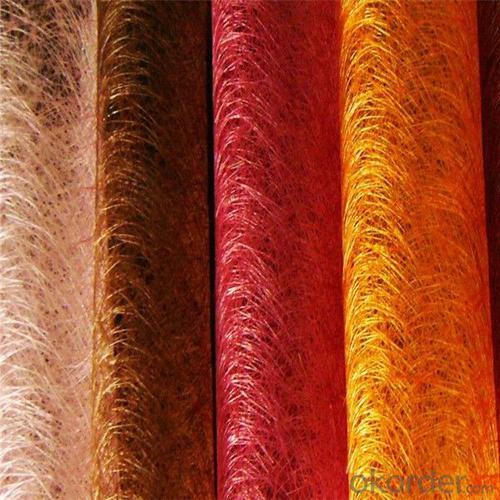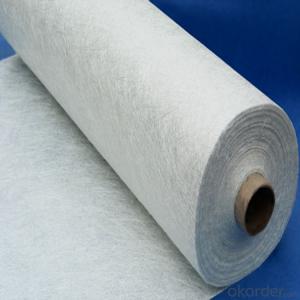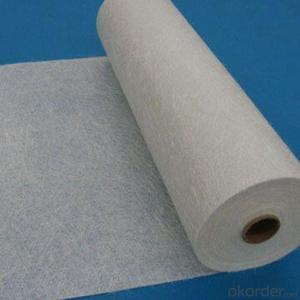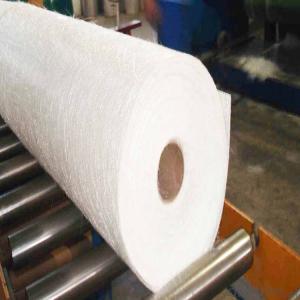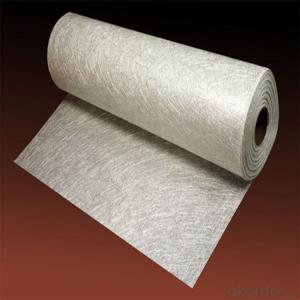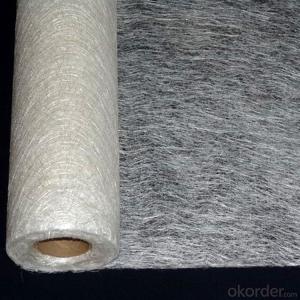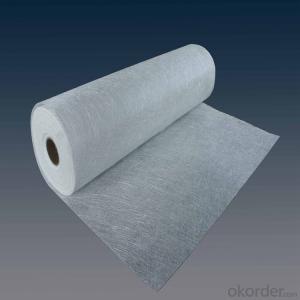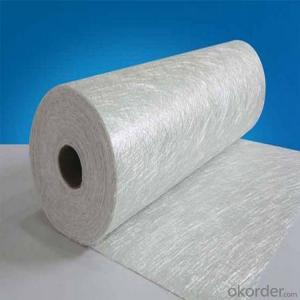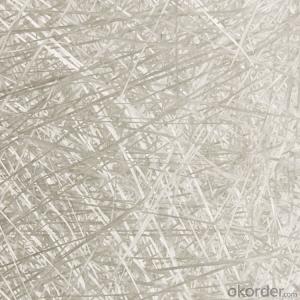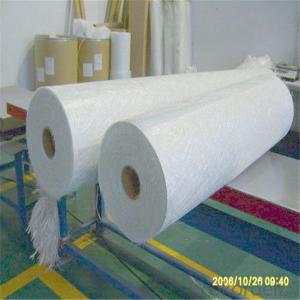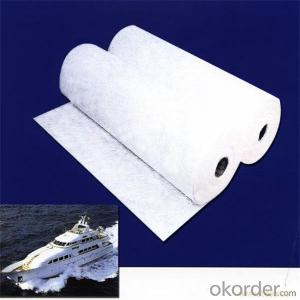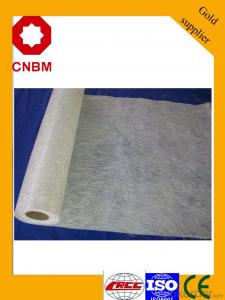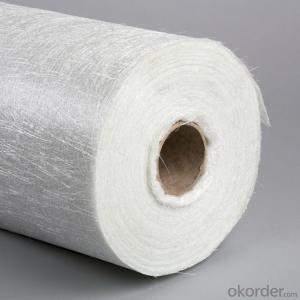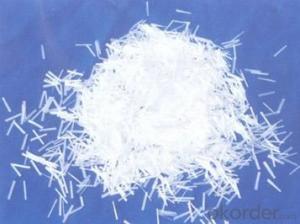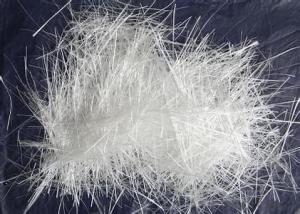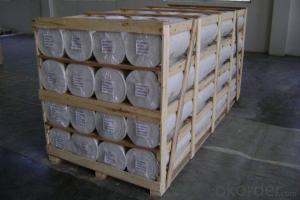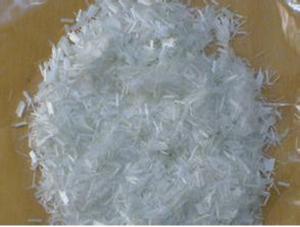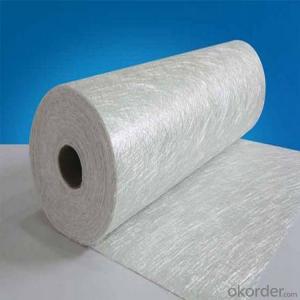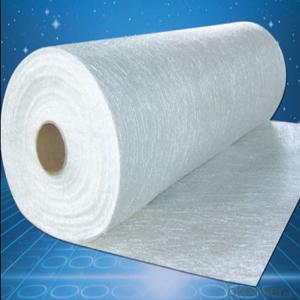Fiberglass Chopped Strand 100g E-Glass Glassfiber Chopped Stand Mat
- Loading Port:
- Tianjin
- Payment Terms:
- TT OR LC
- Min Order Qty:
- 100 m.t.
- Supply Capability:
- 100000 m.t./month
OKorder Service Pledge
OKorder Financial Service
You Might Also Like
Quick Details
| Technique: | Chopped Strand Fiberglass Mat (CSM) | Dimensions: | 225g/m2-900g/m2 | Fiberglass Type: | E-Glass |
| Place of Origin: | China (Mainland) | Brand Name: | cnbm | Model Number: | 300G-900G |
| moisture: | ≤0.2% | combustion content: | 2.1-6.3% | binder type: | emulsion or powder |
| width: | 1040,1270,2080mm |
Packaging & Delivery
| Packaging Details: | plastic bag then carton then pallet |
| Delivery Detail: | 15 days after payment |
Advantage
1. Chopped strand mat is made up from fiberglass chopped strands bonded with powder binder or emulsion binder
2. Wet out faster and easy of handling
3. Good choppability
4.thickness uniformity
Apllication
fiberglass chopped strand mat
It is used for processing and manufacturing FRP products with getting through hand lay up process, filament winding process and press molding. Typical products is including bathroom accessories, pipe, building material, automobile, furniture, vessel, cooling towers and other FRP products
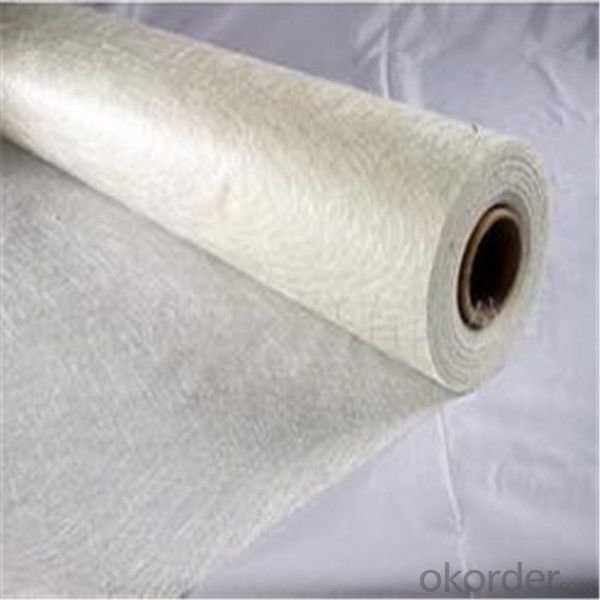
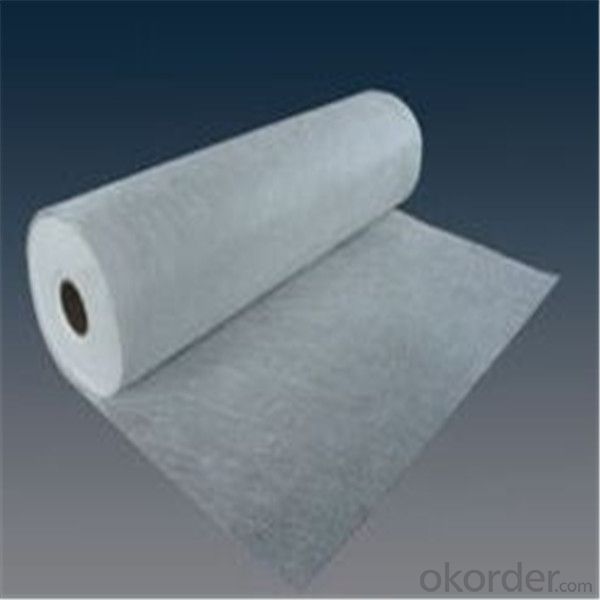
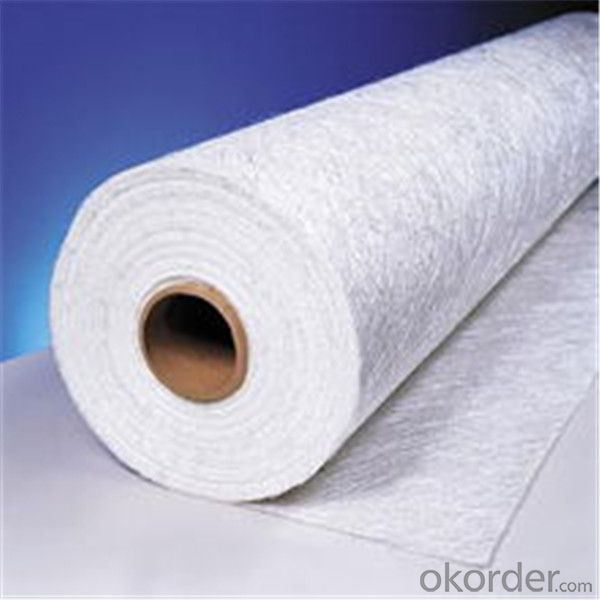
- Q: How is the compatibility of fiberglass chopped strand with different resin systems determined?
- The compatibility of fiberglass chopped strand with different resin systems is typically determined through a series of tests and evaluations. These tests involve examining various factors such as adhesion strength, wet-out capability, and overall mechanical performance of the composite material. Additionally, compatibility can also be assessed by analyzing the chemical interaction between the fiberglass and resin, as well as their ability to bond and form a cohesive structure.
- Q: What are the typical tensile and flexural strengths of chopped strand composites?
- The tensile and flexural strengths of chopped strand composites can differ based on several factors, including the type and quantity of reinforcement fibers utilized, the resin matrix, and the manufacturing process employed. Nevertheless, in general, chopped strand composites tend to demonstrate favorable tensile and flexural strengths. Tensile strength denotes the maximum stress that a material can endure prior to breaking under tension. Chopped strand composites usually possess tensile strengths ranging from 100 to 500 megapascals (MPa) or more, contingent upon the specific composition and processing conditions. The reinforcing fibers, such as glass or carbon, play a vital role in enhancing the tensile strength of these composites by distributing the applied load and offering resistance to deformation. Flexural strength, also known as the modulus of rupture, assesses a material's capacity to withstand bending forces without fracturing. Chopped strand composites generally display flexural strengths within the range of 80 to 300 MPa, though higher values can be achieved through advanced reinforcement techniques and optimized resin systems. It is essential to recognize that these values are approximations and can significantly vary depending on the specific application and design requirements. Furthermore, the mechanical properties of chopped strand composites can be further improved by incorporating additives like fillers or nanoparticles, and by optimizing manufacturing process parameters such as fiber orientation and resin curing conditions. Consequently, it is advisable to consult experts or conduct specific testing to ascertain the precise tensile and flexural strengths for a particular chopped strand composite system.
- Q: Is fiberglass chopped strand suitable for automotive body parts?
- Indeed, automotive body parts can indeed be constructed with fiberglass chopped strand, a material that possesses lightweight and robust qualities, thereby ensuring exceptional durability and impact resistance. As a result, fiberglass proves to be an ideal option for automotive applications. By utilizing chopped strand mat, which consists of randomly arranged strands, reinforcement is provided to the body parts, thereby enhancing their strength and stiffness. Moreover, fiberglass boasts corrosion-resistant properties and the ability to withstand harsh environmental conditions, further solidifying its status as a dependable choice for automotive body parts. Furthermore, its versatility allows for easy molding and shaping into intricate designs, providing automotive manufacturers with the desired flexibility. All in all, due to its strength, durability, and versatility, fiberglass chopped strand emerges as a suitable material for automotive body parts.
- Q: Can fiberglass chopped strand be used in the production of automotive grilles?
- Yes, fiberglass chopped strand can be used in the production of automotive grilles. Fiberglass chopped strand is a common material used in various industries, including automotive manufacturing. It offers several benefits that make it suitable for automotive grilles. Firstly, fiberglass chopped strand is lightweight yet strong, making it ideal for automotive applications where weight reduction is important. It can provide the required structural integrity and durability to withstand impact and withstand harsh weather conditions. Secondly, fiberglass chopped strand can be easily molded into complex shapes, allowing for intricate grille designs. It can be formed into various sizes and patterns, providing flexibility for designers to create visually appealing grilles that enhance the aesthetics of the vehicle. Furthermore, fiberglass chopped strand is corrosion-resistant, which is crucial for automotive grilles exposed to outdoor elements, such as rain, snow, and road salt. It can withstand these corrosive factors, ensuring the longevity and performance of the grille. Lastly, fiberglass chopped strand is cost-effective compared to other materials like metal. It offers a balance between affordability and performance, making it a popular choice for automotive manufacturers. Overall, fiberglass chopped strand is a suitable material for automotive grille production. Its lightweight, strength, moldability, corrosion resistance, and cost-effectiveness make it a practical choice for creating durable and aesthetically pleasing grilles.
- Q: What are the fire resistance properties of fiberglass chopped strand?
- Fiberglass chopped strand has excellent fire resistance properties. Its composition, which includes glass fibers, offers inherent resistance to heat and flames. Additionally, fiberglass is non-combustible and does not release toxic gases when exposed to fire. These properties make fiberglass chopped strand a popular choice for fire-resistant applications, such as insulation, fire doors, and protective clothing.
- Q: What are the safety precautions to be taken while handling fiberglass chopped strand?
- When handling fiberglass chopped strand, there are several safety precautions that should be taken to ensure the well-being of individuals. 1. Personal Protective Equipment (PPE): It is essential to wear appropriate PPE when handling fiberglass chopped strand. This includes safety goggles or a face shield to protect the eyes from any loose fibers or particles. Additionally, gloves should be worn to prevent direct contact with the fiberglass, which can cause irritation or cuts on the skin. Long-sleeved shirts and long pants should also be worn to provide further protection. 2. Ventilation: Fiberglass chopped strand should be handled in a well-ventilated area to minimize the inhalation of airborne fibers. If working indoors, open windows and doors or use exhaust fans to ensure proper air circulation. If working outdoors, position yourself upwind to avoid inhaling any fiberglass particles. 3. Proper Storage: Store fiberglass chopped strand in a secure location away from moisture and direct sunlight. This will prevent any potential degradation of the material and ensure its safety for use. 4. Handling Techniques: When handling fiberglass chopped strand, it is important to handle the material with care. Avoid dropping or mishandling the fibers to prevent the release of loose particles into the air. It is recommended to use gloves or tools specifically designed for handling fiberglass to minimize direct contact. 5. Cleanliness and Hygiene: After handling fiberglass chopped strand, individuals should thoroughly wash their hands and exposed skin to remove any loose fibers. It is also important to avoid touching the face, eyes, or mouth during the handling process to prevent accidental ingestion or irritation. 6. Disposal: Proper disposal of fiberglass chopped strand is crucial to prevent any environmental contamination. Dispose of any unused or waste material in accordance with local regulations and guidelines. By following these safety precautions, individuals can minimize the risks associated with handling fiberglass chopped strand and ensure a safe working environment.
- Q: What is the water repellency of fiberglass chopped strand?
- The water repellency of fiberglass chopped strand can vary depending on the specific manufacturing process and any additional coatings or treatments applied to the material. Generally, fiberglass chopped strand is known to have good water resistance due to its non-porous nature and the hydrophobic properties of the glass fibers. This means that water is less likely to be absorbed by the material and is more likely to bead up and roll off the surface. However, it is important to note that fiberglass is not completely waterproof and can still absorb water over time if not properly sealed or protected. Additionally, the water repellency of fiberglass chopped strand can also be influenced by factors such as the length and diameter of the fibers, as well as the orientation and distribution of the strands within the material.
- Q: How does the impact resistance of fiberglass chopped strand compare to other reinforcing materials?
- The impact resistance of fiberglass chopped strand is generally considered to be superior to many other reinforcing materials. Fiberglass chopped strand is known for its high strength-to-weight ratio, which allows it to withstand significant impact forces without breaking or deforming. Comparatively, materials like steel or aluminum may provide good impact resistance, but they are much denser and heavier, which can limit their effectiveness in certain applications. Additionally, when compared to natural fibers such as jute or cotton, fiberglass chopped strand offers much higher impact resistance. Natural fibers are typically less durable and have lower tensile strength, making them more susceptible to impact damage. Overall, fiberglass chopped strand offers a balance of strength, lightness, and impact resistance that makes it a preferred choice for many applications where durability and resilience are important factors.
- Q: How does the viscosity of the resin affect the impregnation of chopped strand?
- The viscosity of the resin directly affects the impregnation process of chopped strand. A higher viscosity resin will make it more difficult for the chopped strand to be fully saturated and dispersed evenly throughout the resin. This can result in poor wetting and bonding between the resin and the chopped strand, leading to weaker overall composite properties. On the other hand, a lower viscosity resin will have better flowability, allowing for improved impregnation and better consolidation of the chopped strand within the resin matrix. Therefore, controlling and optimizing the viscosity of the resin is crucial for achieving optimal impregnation and ultimately, the desired mechanical properties of the composite material.
Send your message to us
Fiberglass Chopped Strand 100g E-Glass Glassfiber Chopped Stand Mat
- Loading Port:
- Tianjin
- Payment Terms:
- TT OR LC
- Min Order Qty:
- 100 m.t.
- Supply Capability:
- 100000 m.t./month
OKorder Service Pledge
OKorder Financial Service
Similar products
Hot products
Hot Searches
Related keywords
